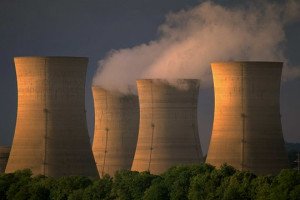5 September 2011, Sweetcrude, Lagos – Electricity supply in Nigeria has stabilised at 3,700 megawatts after a recent collapse of the Power Holding Company of Nigeria (PHCN) facilities, leading to a near complete darkness across the country for three days.
PHCN suffered the system failure after Shell Petroleum Development Company of Nigeria (SPDC) closed its Utorogu Gas Plant in Ughelli, Delta State, following leakages at the gas pipeline.
PHCN’s managing director, Mr. Hussein Labo, confirmed the stability in power supply but stated that the figure fluctuates periodically. “This thing (generation) changes every time, but it is at 3,700mw,” he said.
Nigeria’s electricity supply had peaked at 3,800mw for few hours on August 2010, before it started the current fluctuations. Before last week’s system collapse, PHCN had earlier recorded 11 system collapses this year, whereas for the corresponding periods in 2008, 2009 and 2010, the figures were 36, 33 and 27, respectively.
General Manager of the National Control Centre (NCC) at Oshogbo in Osun State, Mr. Jonathan Ndiagwalukwe, attributed system disturbance to frequent tripping of critical lines, stressing that most of the trippings are traceable to “fouling of the line conductors by vegetation.”
He noted that automatic frequency regulation, which was introduced in January 2011, had helped to improve system stability and substantial reduction in system collapses. “In fact, about 90 per cent of the system collapses we have recorded this year had tripping of transmission line as the immediate cause,” he said.
The general manager also stated that the restoration of the system after a collapse was one of the most difficult tasks the system controllers perform, adding that only Delta Power Station can “black start” the system.
Minister of Power, Prof. Bart Nnaji, had vowed to hold “someone in PHCN” accountable any time the ailing power utility company experienced system collapse. However, the latest system collapse was beyond PHCN as it was related to inadequate gas supply by the NNPC.




